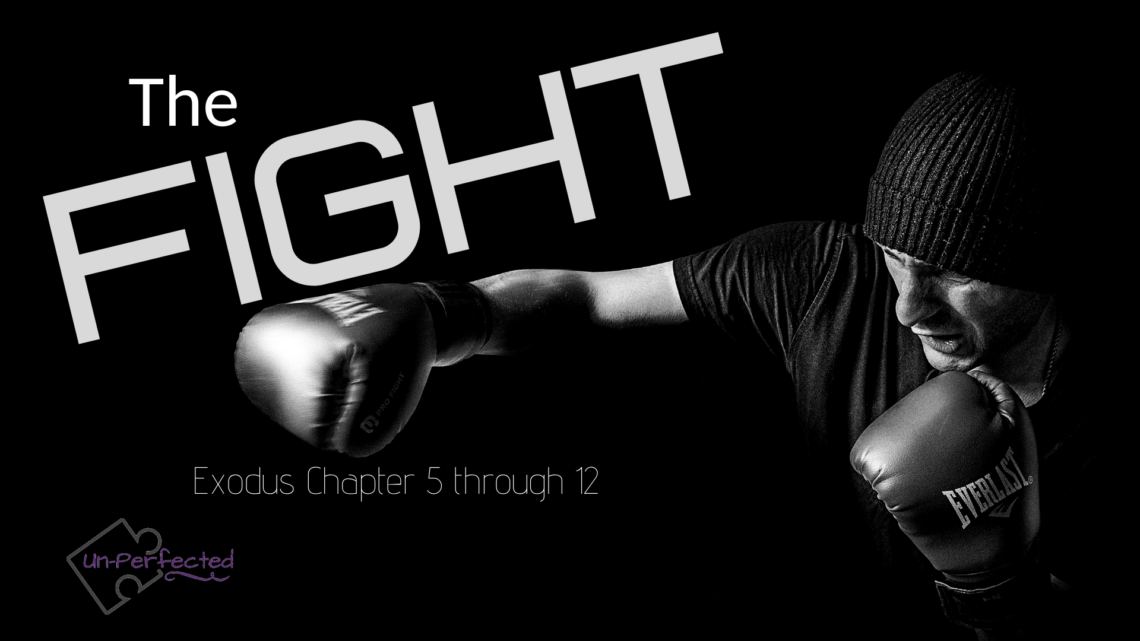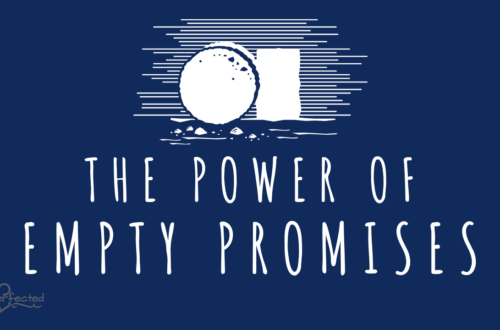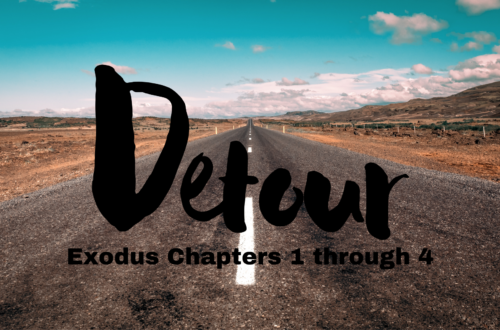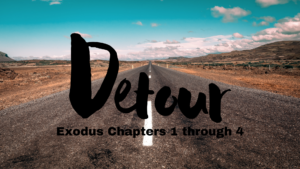
Exodus: The Fight
Last week we began our journey through the book of Exodus. We left off with last week with Moses leaving Midian to return to Egypt. If you missed that post, check it out here.
Let My People Go
Upon returning to Egypt, Moses and his brother Aaron meet with the Israelite leaders and tell them about what God has said. After showing some miraculous signs, the leaders believe that Moses and Aaron are actually telling them the truth. Okay, the Bible does not say that, but it’s implied. Go read it for yourself at the end of chapter 4, starting in verse 29.
Moses and Aaron then meet with the Pharaoh himself.
>>>> Side bar; have you ever wondered how Moses got a face to face with the king of the land when he was a no-one to him at best or a wanted murderer at worst? Anyway, back to the story. End side bar<<<<<<
Moses says those famous words:
“Let my people go.”
You always imagine Moses with his fists on his hips and his muscle-filled chest sticking out demanding that the Pharaoh release his people from slavery. Right?
The weird thing… I think people must not have read this book before quoting old Moses or making movies about him. Because they only got half of the quote! Let me explain.
The Complete Quote
The full quote can be found in Exodus Chapter 5, verse 1. It says” Afterward Moses and Aaron went to Pharaoh and said, “This is what the Lord, the God of Israel, says: ‘Let my people go, so that they may hold a festival to me in the wilderness.’”
See what I mean? Moses at this point wasn’t demanding freedom for his people. He was asking for a vacation! But God had a plan and he used a simple request for a week off to accomplish it. Of course, I’m getting a head of myself.
We'll Show Them!
Pharaoh must have gotten his feelings hurt by Moses’ and Aaron’s request for some time off, so he decides to “show them” with even harder labor and treatment. He uses the excuse, “they must not have enough work since they want time off!” But I think he was really upset that he wasn’t invited too. (Que sound of a baby crying).
The Israelites get a little mad at Moses and Aaron for getting them into this so Moses goes back to God and throws a fit (enter more baby crying sounds). Wow these guys can complain! Anyways, God shuts Moses up with an awesome speech and an even more amazing show of power. Actually several shows of power.
Snakes
Moses goes back to the Pharaoh and commands Aaron to throw his staff down. Just as in the wilderness, God turns the staff into a snake. You would think this would impress old kingy, but he has his guys do the same thing with their “secret arts”. Of course, Moses’ snake is way better and swallows up the other guys snakes.
The Pharaoh is still stubborn and refuses to release the Hebrews.
And the Plagues Begin
God told Moses that he would harden Pharaoh’s heart so that he could show his power and free the Israelites for good. God’s plan was always to draw this out because he knew he needed Pharaoh to do exactly what he ends up doing.
He uses 10 plagues to push the Pharaoh to the edge. In order they are:
- Blood (Exo 7:14-24)
- Frogs (Exo 8:1-15)
- Lice or gnats (Exo 8:16-19)
- Flies (Exo 8:20-32)
- Livestock (Exo 9:1-7)
- Boils (Exo 9:8-12)
- Hail (Exo 9:13-35)
- Locust (Exo 10:1-20)
- Darkness (Exo 10:21-29)
- Death of firstborn (Exo 11)
Pretty nasty business right? God had to do some harsh stuff to get the Pharaoh and the Israelites to the point they needed to be at for God’s plan to unfold. He used the anger of the Pharaoh and the desperation of the Israelites to show who he was and how his people could count on him to help them.
The Passover
God used the last plague in particular to show his power and love for his people. During the plague of the death of the firstborn, God instructed Moses to have the people complete a special sacrifice and ceremony that marked them as God’s people and spared their firstborns.
It was this night that the Pharaoh had finally had enough and released the Israelites from their work for their “three day journey”. The Passover is still observed to this day to remember how God brought his people out from slavery.
The Wrap-Up
We covered a huge chunk of Exodus this week, but it’s important to see how all of these things worked together. It’s like our lives sometimes. If we concentrate on one bad thing that’s going on, we can loose sight of the bigger good thing that’s unfolding.
God uses all of the things in our lives to paint a masterpiece. That’s why in the Greek translation of the Bible, we are referred to as God’s “workmanship” or “POIEMA”. Poiema is where we get the English word “poem”.
This Week's Challenge
For God
Spend time each day reading through Exodus chapters 5 through 12. I know it sounds like a lot, but it’s like 7 pages. You can do a page a day.
Don’t forget to talk to God while you read and throughout your day. He loves to help his kids see the message in his scripture.
For Others
Moses did something amazing for his people, but you don’t have to free an entire people from slavery to make a difference. Your challenge this week is to find someone that you can help.
Maybe you can volunteer at a soup kitchen or animal shelter. Maybe you can walk in a charity walk or take donations for a local clothing drive.


You May Also Like

The Power of Empty Promises
April 11, 2020
Exodus: The Detour
June 4, 2019

